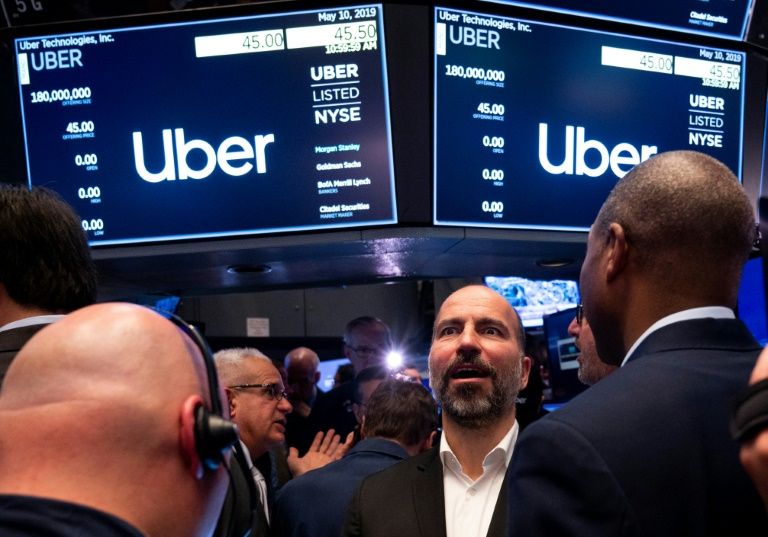Uber and Lyft drivers challenge California ‘gig worker’ ballot
San Francisco (AFP) – Drivers for ride-share and meal delivery apps filed a lawsuit Tuesday to nullify a referendum passed by California voters that lets such “gig workers” be treated as contractors.
Labor legislation known as Proposition 22 — passed in November and heavily backed by backed by Uber, Lyft and other app-based, on-demand delivery services — effectively overturned a state law requiring them to reclassify their drivers and provide employee benefits.
The lawsuit argued the measure is invalid because it usurps the power of state courts and legislators when it comes to worker rights and compensation.
The suit was filed directly to the top court in the state by a few drivers and the Service Employees International Union.
“The measure grossly deceived the voters, who were not told they were voting to prevent the Legislature from granting the drivers collective bargaining rights,” the lawsuit argued.
The suit went on to argue that the initiative also precluded the state legislature “from providing incentives for companies to give app-based drivers more than the minimal wages and benefits provided by Proposition 22.”
Defendants in the litigation were the state of California and its commissioner of labor.
The November vote came after a contentious campaign with labor groups claiming the initiative would erode worker rights and benefits, and with backers arguing for a new, flexible economic model.
The victory for the “gig economy” in California was expected to echo across the US, in a boon for app-based services while igniting fear that big business is rewriting labor laws.
Uber chief executive Dara Khosrowshahi has vowed to “more loudly advocate for new laws like Prop 22.”
More than $200 million was spent promoting Proposition 22, while only a tenth of that amount was spent by labor groups opposing the measure.
Under the proposition, drivers remain independent contractors but Uber and Lyft are to pay them a number of benefits including a minimum wage, a contribution to healthcare and other forms of insurance. Critics of the measure said it failed to take into account the full costs borne by drivers.
Uber and Lyft claimed most drivers support the contractor model.
But the firms had been sued by the state which argued keeping that model violated California labor law. A Proposition 22 victory renders the court case effectively moot.
Disclaimer: Validity of the above story is for 7 Days from original date of publishing. Source: AFP.


